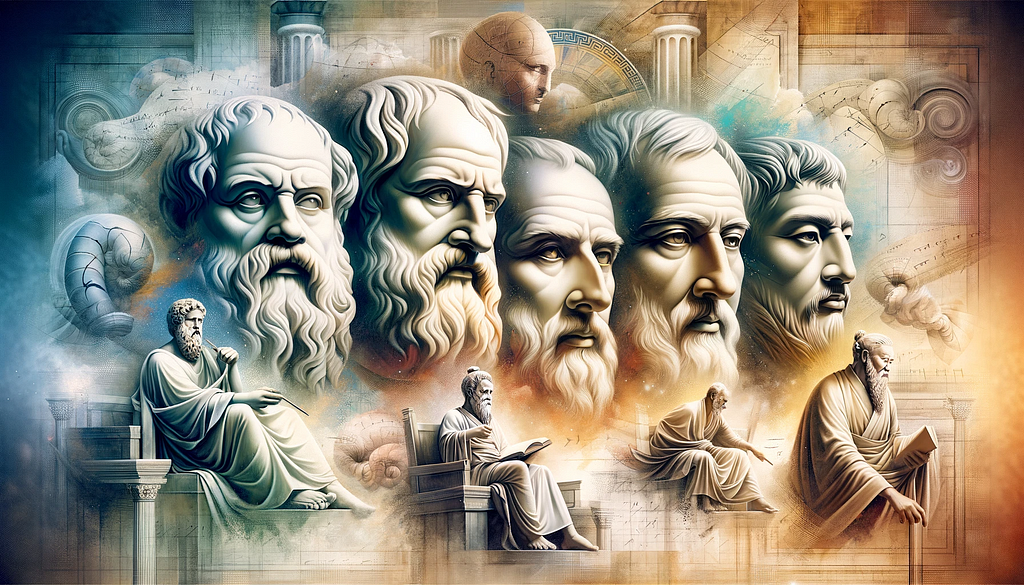
In the ever-evolving landscape of modern thought and technology, one might assume that ancient philosophy has become obsolete. However, the wisdom of philosophers like Socrates, Plato, Aristotle, Confucius, and others continues to offer profound insights into the human condition, ethics, governance, and the nature of knowledge. This article explores the timeless relevance of these ancient philosophies in contemporary life.
The Quest for Knowledge: Socratic Method Socrates, an enigmatic figure of ancient Greece, left no writings, but his dialectic method, as chronicled by his student Plato, remains influential. The Socratic Method, a form of cooperative argumentative dialogue, encourages critical thinking and illuminates the importance of questioning to seek deeper truths. In modern education, this method fosters analytical skills, showing that the pursuit of knowledge is as relevant today as it was in ancient Athens.
Ethics and Morality: Aristotelian Virtues Aristotle’s concept of the “Golden Mean” — the desirable middle between two extremes, one of excess and the other of deficiency — is a guiding principle in modern ethical decision-making. His emphasis on virtues like courage, temperance, and justice provides a framework for personal development and moral judgment, applicable in diverse contemporary contexts from personal growth to professional ethics.
Political Theory: Plato’s Republic Plato’s “Republic” offers insights into the nature of justice and the ideal state, which resonate in today’s political discussions. His vision of a philosopher-king, while utopian, underscores the importance of wisdom and moral integrity in leadership — a principle highly relevant in the context of modern governance and political discourse.
Eastern Philosophy: Confucianism and Harmony Confucius, a revered sage in Eastern philosophy, emphasized the values of respect, family loyalty, and social harmony. In an age where global conflicts and societal divisions are prevalent, Confucian principles provide a pathway to understanding and maintaining social cohesion and respect for cultural traditions.
Stoicism: Resilience and Emotional Control The Stoic philosophy, founded by Zeno of Citium, teaches the development of self-control and fortitude as a means to overcome destructive emotions. In a world increasingly dealing with mental health issues and stress, the Stoic emphasis on resilience, mindfulness, and the importance of focusing on what one can control is profoundly relevant.
Ancient philosophy is not just a relic of the past but a living, breathing source of wisdom that continues to inform and shape modern thought and practice. From the Socratic Method’s emphasis on critical thinking to the Stoic principles of resilience, these ancient ideas offer valuable insights into personal, ethical, and societal challenges of the 21st century. As humanity continues to grapple with complex issues, the teachings of ancient philosophers remain a guiding light, demonstrating that wisdom truly is timeless.
The Enduring Relevance of Ancient Philosophy was originally published in EpicurusEcho on Medium, where people are continuing the conversation by highlighting and responding to this story.